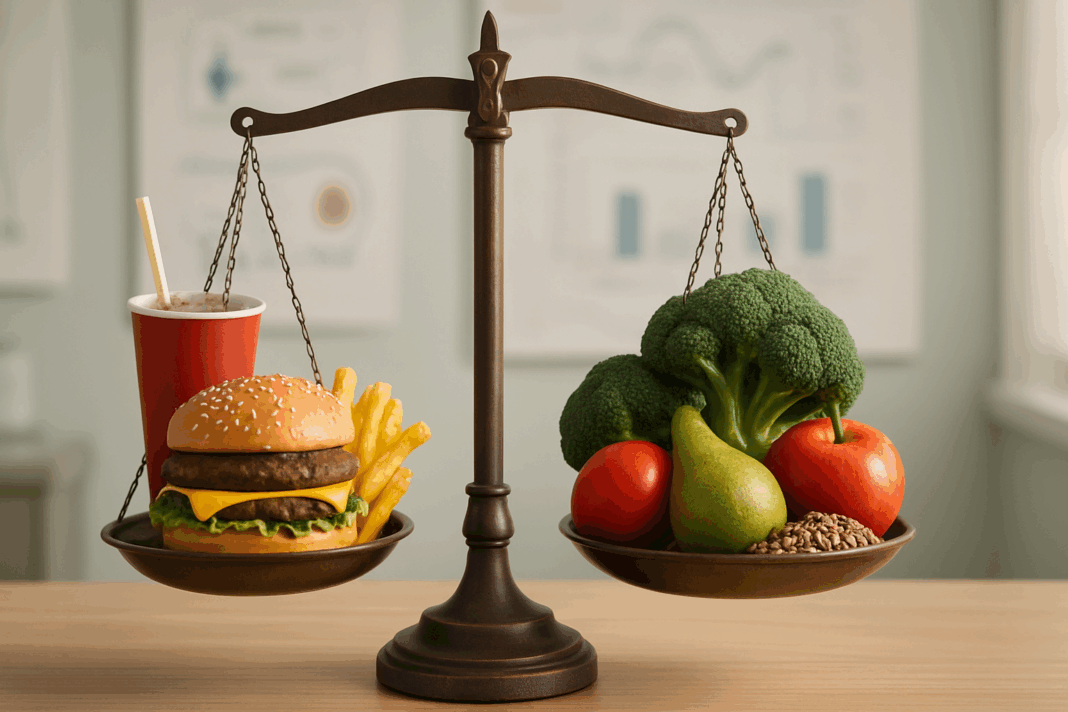Introduction: Rethinking the Role of Calories in Weight Gain
Understanding how calories affect our bodies is essential in an age where diet-related diseases are increasingly common and misinformation about nutrition spreads easily. Many people wonder: can calories make you fat, or is it more complex than a simple numbers game? The phrase “calories makes you fat” has become a popular—and sometimes misleading—catchphrase. But behind the simplicity of this notion lies a web of scientific insights, physiological processes, and lifestyle factors that shape the way our bodies store or burn energy. This article delves deep into the science of calorie metabolism, the relationship between caloric intake and fat accumulation, and how nutritional quality and lifestyle choices play crucial roles in weight regulation.
You may also like: Macronutrients vs Micronutrients: What the Simple Definition of Macronutrients Reveals About Your Diet and Health
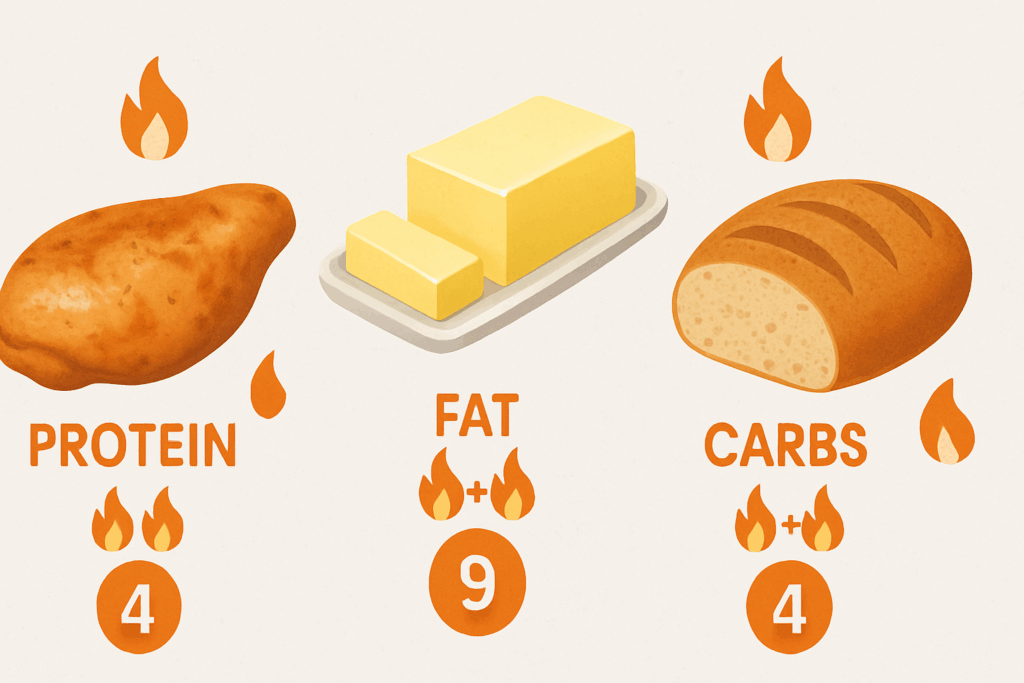
What Are Calories and How Do They Work?
To truly understand whether calories makes you fat, we must begin by clarifying what a calorie is and how the body uses it. A calorie is a unit of energy, specifically the amount of energy needed to raise the temperature of one gram of water by one degree Celsius. In the context of food, calories represent the potential energy our bodies can extract and use from carbohydrates, proteins, and fats. Each macronutrient contains a different amount of energy per gram—carbohydrates and proteins provide roughly four calories per gram, while fat provides about nine. This numerical difference often leads to the assumption that fat makes you fatter, but the full story involves much more than simple arithmetic.
The Energy Balance Equation: Calories In vs. Calories Out
Weight gain occurs when the number of calories consumed exceeds the number of calories the body expends. This fundamental principle is often referred to as the energy balance equation. In theory, consistently eating more calories than your body needs leads to fat accumulation. However, the way your body processes those calories depends on a range of individual factors—including your metabolism, hormone levels, physical activity, sleep patterns, and even your gut microbiome. This complexity is why the question “can calories make you fat” does not have a one-size-fits-all answer.
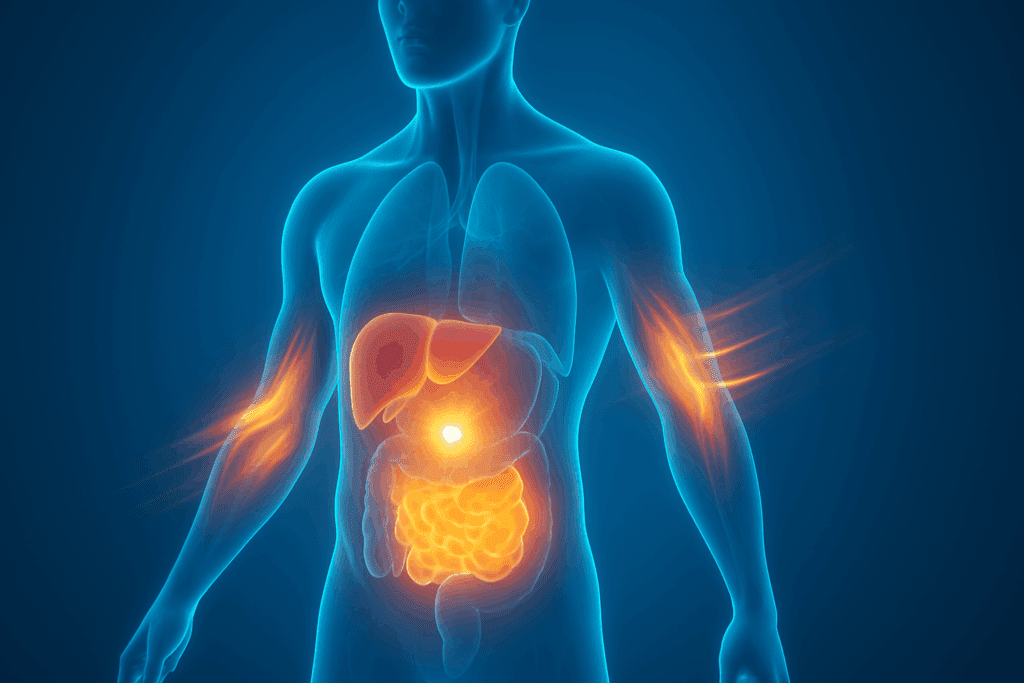
Metabolism and Its Influence on Caloric Processing
The body’s metabolism is central to understanding how calories are processed. Metabolism refers to all the biochemical reactions that occur in the body to maintain life, including converting food into energy. Basal metabolic rate (BMR) is the amount of energy your body uses at rest to perform basic functions such as breathing, circulating blood, and cell repair. Some people naturally have higher BMRs than others, which means they burn more calories even while at rest. Muscle mass also significantly impacts metabolic rate, as muscle tissue burns more calories than fat tissue. Therefore, two people consuming the same number of calories could experience different outcomes in terms of weight gain.
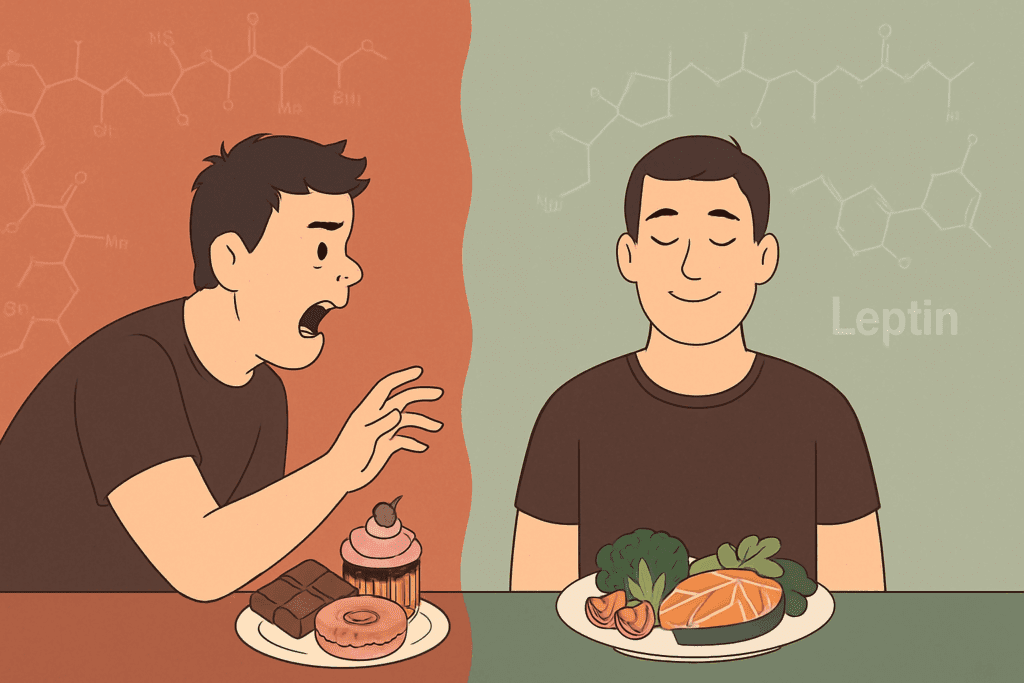
Hormones, Hunger, and Satiety
Beyond metabolism, hormonal regulation plays a powerful role in weight management. Hormones like insulin, leptin, ghrelin, and cortisol influence hunger, satiety, fat storage, and energy expenditure. For instance, insulin helps regulate blood sugar and promotes fat storage when elevated. Chronic overconsumption of high-glycemic foods can lead to insulin resistance, making it harder for the body to burn fat effectively. Leptin, produced by fat cells, signals satiety to the brain, but in individuals with obesity, leptin resistance can develop, impairing the body’s ability to recognize fullness. These physiological responses demonstrate that while calories are foundational to energy balance, they do not operate in a vacuum.
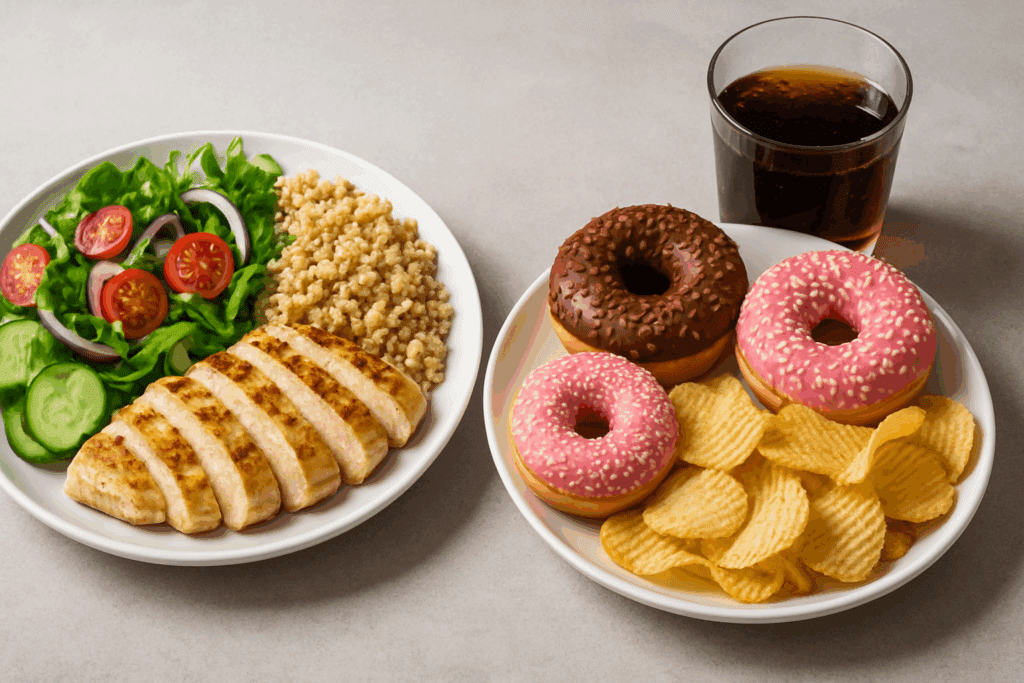
Not All Calories Are Created Equal
Another essential aspect to consider is the quality of the calories consumed. Not all calories are created equal in terms of their effects on satiety, metabolism, and overall health. Whole foods such as vegetables, fruits, lean proteins, and whole grains provide vitamins, minerals, and fiber that support metabolic health and regulate appetite. On the other hand, highly processed foods are often rich in calories but low in nutritional value. These “empty calories” can disrupt hormonal balance, increase inflammation, and promote overeating. Therefore, while 500 calories from a donut and 500 calories from a grilled chicken salad may be numerically equivalent, their impacts on your body are vastly different.
The Pitfalls of Obsessive Calorie Counting
One of the most common misconceptions is that calorie counting alone can reliably predict weight loss or gain. While it’s true that a sustained caloric deficit can lead to weight loss, the process is not always linear or predictable. Adaptive thermogenesis, for example, refers to the body’s tendency to reduce energy expenditure in response to prolonged calorie restriction, making it harder to continue losing weight. This biological adaptation highlights the body’s evolutionary drive to preserve energy during perceived scarcity. In this context, simply reducing calorie intake may not be sufficient to prevent fat accumulation or to promote sustainable weight loss.
Physical Activity and Energy Expenditure
It’s also important to address how physical activity affects the relationship between calories and fat gain. Exercise increases caloric expenditure and improves insulin sensitivity, helping the body utilize energy more efficiently. Regular physical activity, especially resistance training, supports muscle maintenance and metabolic health, which can reduce the likelihood that excess calories will be stored as fat. However, some individuals overestimate the calories burned through exercise and inadvertently compensate by eating more, neutralizing the benefits of their workouts. Thus, achieving and maintaining a healthy weight involves more than just balancing the numbers—it requires mindful, consistent behavioral patterns.
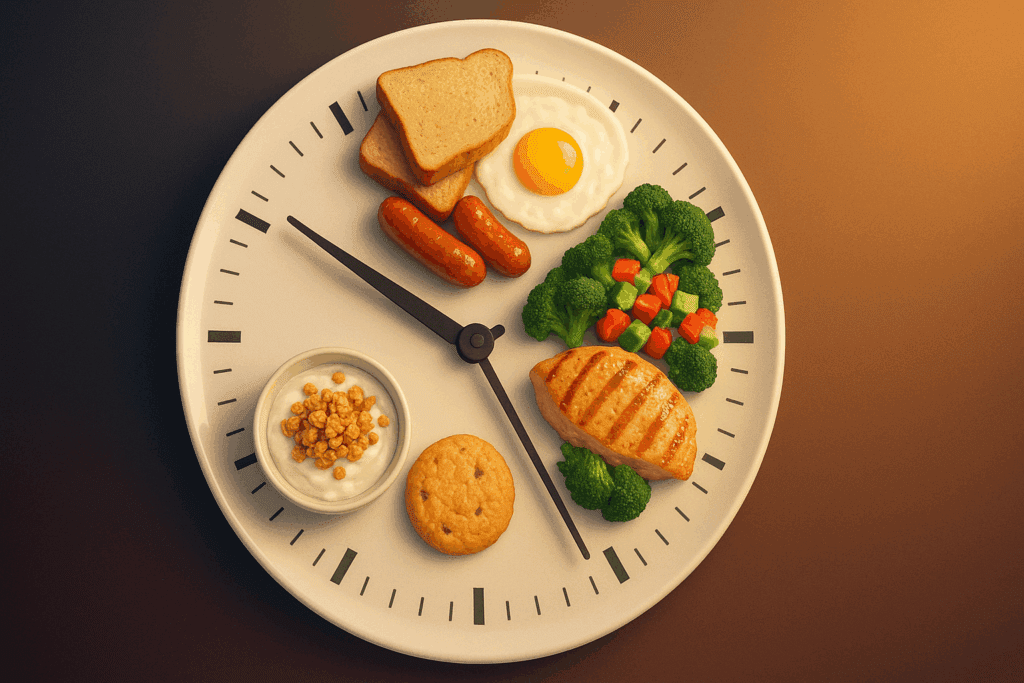
Meal Timing and Circadian Rhythms
Another overlooked factor is the timing and distribution of caloric intake throughout the day. Emerging research suggests that meal timing can influence metabolic processes. For instance, consuming larger meals earlier in the day may support better blood sugar control and fat metabolism compared to eating heavily at night. This phenomenon, known as chrononutrition, aligns eating patterns with circadian rhythms, potentially influencing how the body processes and stores calories. Therefore, the question isn’t just whether calories makes you fat, but when and how those calories are consumed.
The Interplay Between Sleep, Stress, and Diet
Sleep, stress, and mental health also interact with dietary patterns in significant ways. Poor sleep quality can disrupt hunger hormones and lead to increased caloric intake the following day, especially from high-carbohydrate and sugary foods. Chronic stress elevates cortisol levels, which can promote abdominal fat storage and drive cravings for calorie-dense comfort foods. Mental health conditions such as depression and anxiety can also influence appetite and eating behavior, sometimes leading to emotional or binge eating. These psychological dimensions must be considered when evaluating the broader relationship between calories and weight gain.
The Genetic Factor in Weight Regulation
Genetics play a role too, albeit one that is often misunderstood. While no one is genetically destined to become obese, certain genetic variants can predispose individuals to gain weight more easily in obesogenic environments—those that promote excessive caloric intake and sedentary behavior. These genetic influences often affect appetite regulation, fat storage, and the efficiency of energy utilization. Understanding this can help individuals approach weight management with greater self-compassion and a focus on long-term lifestyle changes rather than quick fixes or blame-based narratives.
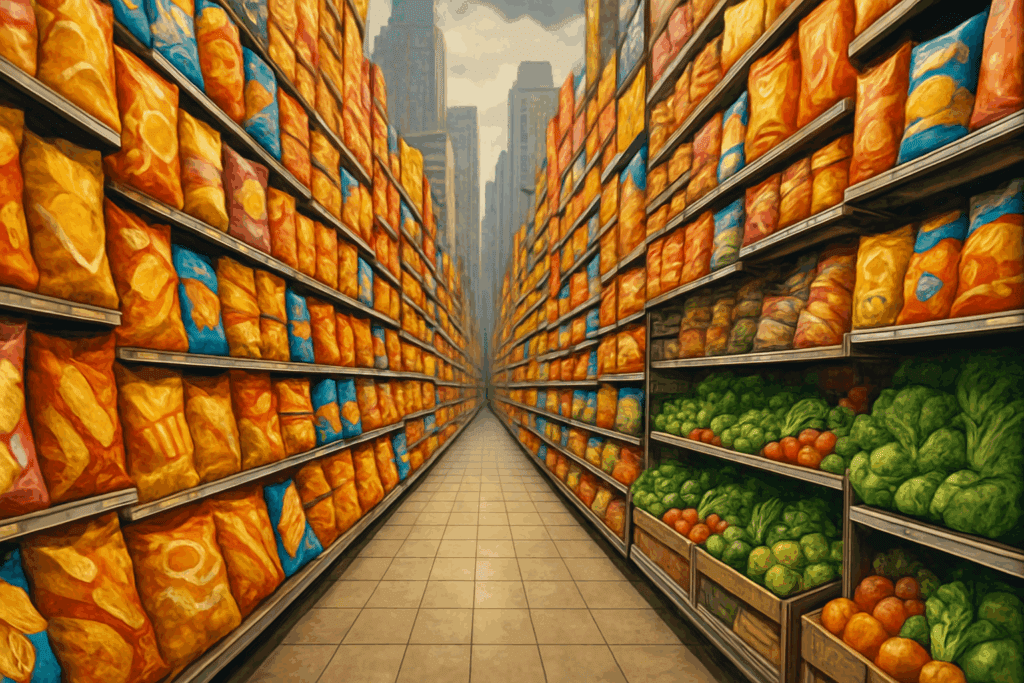
The Impact of the Modern Food Environment
The modern food environment further complicates the issue. Highly palatable, calorie-dense foods are more accessible, affordable, and aggressively marketed than ever before. Fast food, sugary beverages, and packaged snacks often hijack the body’s natural satiety cues, making it easier to overconsume calories without realizing it. This environment makes it challenging to rely solely on willpower or calorie tracking to manage weight effectively. In such contexts, even those who understand the principle that calories makes you fat may struggle to implement that knowledge in practical, sustainable ways.
Social and Cultural Influences on Diet
Moreover, social and cultural factors influence dietary choices and perceptions of body weight. Social norms, family traditions, food marketing, and economic constraints can shape eating habits and attitudes toward food. In some communities, calorie-dense foods may represent comfort, status, or celebration, complicating efforts to reduce caloric intake. Public health strategies that focus solely on individual responsibility without addressing these broader determinants may fail to produce meaningful changes. Effective nutrition education must take into account the lived experiences and socioeconomic realities of diverse populations.
Psychological Health and the Risk of Disordered Eating
It is worth noting that the psychological focus on calories and weight can also have unintended consequences. Obsessive calorie counting, labeling foods as “good” or “bad,” and internalizing weight stigma can contribute to disordered eating patterns and body image issues. A more holistic approach to nutrition emphasizes overall health, energy, and well-being rather than just the number on the scale. This perspective shifts the conversation from “can calories make you fat” to “how can I nourish my body in a way that supports long-term health and vitality.”
Personalized Approaches to Healthy Nutrition
In clinical settings, dietitians and health professionals increasingly advocate for individualized nutrition strategies. Rather than adhering strictly to one-size-fits-all calorie goals, they recommend flexible approaches that consider personal preferences, health conditions, and lifestyle factors. This method aligns with the principles of intuitive eating, which encourage individuals to trust their internal hunger and fullness cues while fostering a positive relationship with food. When applied correctly, intuitive eating can reduce the risk of chronic dieting and promote stable, sustainable weight outcomes without rigid calorie control.
Evolving Science and Dietary Models
Scientific research continues to evolve, challenging some long-held assumptions about calories and fat gain. For example, the carbohydrate-insulin model suggests that high carbohydrate intake increases insulin levels, promoting fat storage regardless of total calories consumed. While this theory has sparked considerable debate, most experts agree that the quality and composition of a diet can influence metabolic pathways and energy balance. Studies comparing low-carb, low-fat, and Mediterranean diets indicate that multiple dietary patterns can be effective for weight management when they emphasize whole, nutrient-dense foods and maintain an appropriate caloric balance.
Frequently Asked Questions (FAQ): Do Calories Make You Fat?
1. Is it possible to gain weight even when eating healthy foods if you consume too many calories? Yes, it is entirely possible to gain weight from eating healthy foods if your overall caloric intake exceeds your body’s energy expenditure. The notion that only junk food contributes to fat gain overlooks the reality that even nutrient-dense options like avocados, nuts, and whole grains still contain calories. While these foods provide essential vitamins and minerals, consuming them in excessive amounts can still lead to weight gain over time. So, although healthy eating supports wellness, it doesn’t negate the basic principle that too many calories makes you fat, regardless of the source. Balance, portion control, and mindful eating remain critical even when the food is high in nutritional value.
2. Can certain people eat more calories without gaining fat due to genetics or metabolism? Yes, genetics and metabolic differences can influence how individuals process and store calories. Some people naturally have a higher resting metabolic rate, which allows them to burn more energy at rest compared to others. This means they can consume more without gaining weight as quickly. Additionally, genetic factors can affect appetite regulation, fat distribution, and how efficiently calories are used for fuel. These differences complicate the simplified idea that calories makes you fat in a uniform way for everyone. While energy balance still matters, metabolic individuality plays a powerful role in long-term body composition.
3. Are there situations where eating more calories could actually help with fat loss? Interestingly, yes—especially in the case of metabolic adaptation from prolonged dieting. When someone consistently consumes too few calories, the body may respond by slowing down its metabolism to conserve energy, making further fat loss difficult. In these cases, a controlled increase in calories—known as a reverse diet—can help restore metabolic health, improve energy levels, and support fat loss in the long run. This strategy illustrates that it’s not always a simple equation where calories makes you fat. Sometimes, strategically increasing calories in a balanced way can enhance weight management by breaking through plateaus and reviving hormonal function.
4. Can calories make you fat if they come primarily from liquids like smoothies or sodas? Liquid calories can be especially problematic because they don’t trigger the same satiety signals as solid foods. Beverages like sugary sodas, fruit juices, or even calorie-dense smoothies are easy to consume quickly, often without realizing how many calories they contain. These drinks bypass much of the chewing and digestive effort that signals fullness to the brain. As a result, people often consume more than intended, and over time, these hidden calories makes you fat even if you’re unaware of the cumulative effect. Focusing on whole foods and being mindful of liquid intake is crucial for calorie-conscious nutrition.
5. How does the concept of calorie density affect whether or not calories make you fat? Calorie density refers to how many calories are packed into a given volume or weight of food. Foods with low calorie density, like leafy greens or berries, allow you to eat larger portions without consuming excessive calories. In contrast, high-calorie-density foods like cheese or fried items offer a lot of calories in a small serving. This concept helps explain why some eating patterns promote satiety and weight control, while others make it easy to overeat. Understanding calorie density provides insight into how certain calories make you fat more readily—not because they’re inherently worse, but because they’re easier to overconsume.
6. Can eating late at night cause calories to turn into fat more easily? Emerging research suggests that meal timing does affect how the body metabolizes food. Eating large amounts of calories late at night, when your metabolism naturally slows and insulin sensitivity declines, can increase the likelihood of fat storage. This doesn’t mean eating at night directly causes weight gain, but the context of those calories matters. If you consistently eat high-calorie meals when your body is less primed to process them efficiently, those calories make you fat more easily compared to the same meals eaten earlier in the day. Aligning meals with your circadian rhythm may support better metabolic health and weight outcomes.
7. Does physical activity change how calories affect your body weight? Absolutely. Physical activity increases your total daily energy expenditure, which can create more room for calorie intake without gaining fat. It also influences how your body partitions nutrients—meaning that active individuals are more likely to store calories in muscle glycogen rather than fat tissue. Additionally, regular exercise improves insulin sensitivity, hormone balance, and appetite regulation, which can all mitigate the risk that excess calories makes you fat. Incorporating strength training and cardiovascular activity into your routine enhances your metabolic flexibility and helps your body handle varying levels of energy intake more effectively.
8. Can stress or poor sleep make calories more likely to turn into body fat? Yes, both chronic stress and inadequate sleep can significantly impact how the body processes calories. High stress elevates cortisol levels, a hormone that promotes abdominal fat storage and increases cravings for calorie-dense foods. Poor sleep disrupts appetite-regulating hormones like leptin and ghrelin, often leading to overeating the next day. In these contexts, the same number of calories makes you fat more easily because the body is hormonally primed for fat storage and impaired energy regulation. Managing stress and prioritizing restorative sleep are essential strategies in a holistic approach to calorie control and fat prevention.
9. Can calories make you fat even if you’re eating within your maintenance level but under high stress or illness? Yes, it’s possible for the body to respond to stress or illness in ways that alter normal energy processing. For example, chronic inflammation or certain medications can cause water retention, reduce physical activity levels, or change how the body stores fat. Even when consuming calories at maintenance levels, shifts in hormones and metabolic rate during times of physiological stress can lead to changes in body composition. This means that sometimes calories make you fat under specific internal conditions, despite apparent adherence to energy balance equations. Health is multifaceted, and contextual changes must be considered.
10. What role does food addiction or psychological eating play in how calories contribute to fat gain? Food addiction and emotional eating patterns can lead to consistent overconsumption of calories, especially from hyperpalatable, processed foods that override the body’s natural satiety signals. In such cases, the issue isn’t just about whether calories makes you fat—it’s about how psychological and emotional factors drive behaviors that result in excessive caloric intake. People experiencing stress, trauma, or mood disorders may use food as a coping mechanism, often without full awareness of how much they’re eating. Addressing these patterns through therapy or behavior-based interventions can help break the cycle where calories make you fat not just physiologically, but behaviorally as well.
Conclusion: Calories, Fat Gain, and the Bigger Picture of Nutritional Wellness
Ultimately, the answer to whether calories makes you fat is both yes and no. Yes, excess calories—regardless of their source—can lead to fat gain over time. But no, it is not just the calorie count that matters. The source, timing, context, and individual metabolism all play crucial roles in determining how calories affect body weight. Understanding these nuances empowers individuals to make informed dietary choices based not only on calorie quantity but also on nutritional quality, lifestyle, and personal health goals.
Nutrition education should move beyond simplistic calorie messages and instead promote a comprehensive understanding of how food interacts with the body. Emphasizing metabolic health, balanced meals, regular physical activity, and stress management creates a more sustainable framework for preventing weight gain and improving overall well-being. When readers ask, “can calories make you fat,” the best answer acknowledges the complexity of human physiology and behavior rather than offering reductionist explanations.
In conclusion, weight management is influenced by an intricate interplay of factors that go far beyond the calorie equation. While it is scientifically accurate to say that consuming more calories than you burn can contribute to fat gain, that statement alone does not capture the full picture. Hormones, metabolism, food quality, meal timing, physical activity, stress, sleep, and even genetics all play a part in shaping how the body responds to energy intake. The notion that calories makes you fat is only partially true—it depends on what kind of calories, how many, when they’re consumed, and by whom. Instead of obsessing over numbers, a more productive focus involves cultivating dietary patterns that prioritize whole foods, support metabolic health, and fit into the individual’s unique lifestyle. This holistic perspective is not only more sustainable, but also more aligned with the latest science on nutrition, health, and wellness.
Further Reading:
Metabolism and weight loss: How you burn calories


